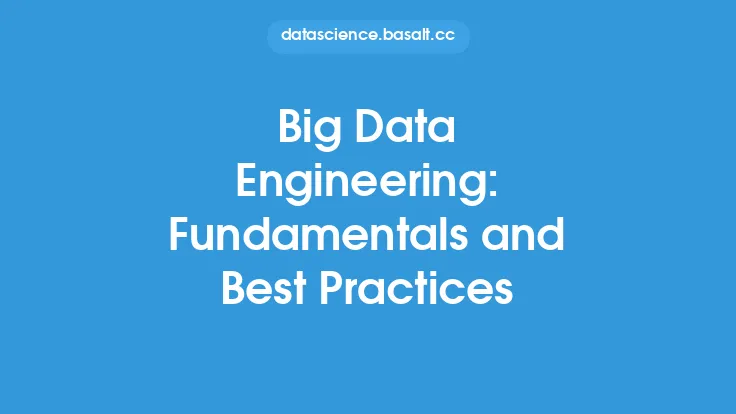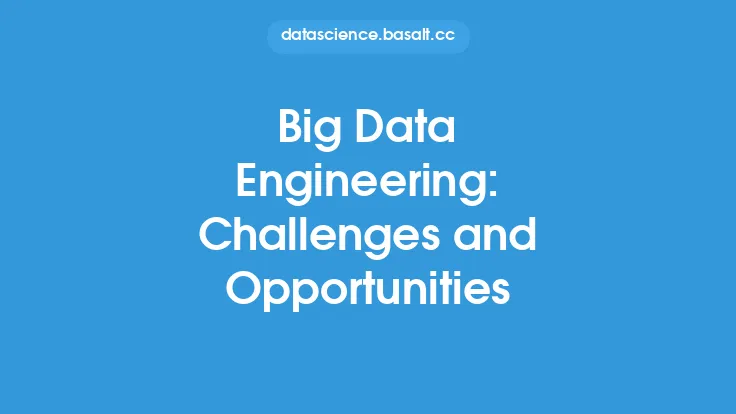To build a successful career in big data engineering, it's essential to have a strong foundation in computer science, mathematics, and statistics. Big data engineers are responsible for designing, building, and maintaining large-scale data systems that can handle vast amounts of data. They must have a deep understanding of data processing, storage, and retrieval, as well as expertise in programming languages such as Java, Python, and Scala.
Key Skills and Qualifications
Big data engineers typically require a bachelor's degree in computer science, information technology, or a related field. They must also possess a range of technical skills, including experience with big data technologies such as Hadoop, Spark, and NoSQL databases. Additionally, big data engineers should have strong problem-solving skills, attention to detail, and the ability to work collaboratively with cross-functional teams.
Career Path and Progression
The career path for big data engineers typically begins with entry-level positions such as data engineer or junior big data engineer. With experience and expertise, big data engineers can progress to senior roles such as lead data engineer or technical architect. They may also specialize in specific areas, such as data science, machine learning, or cloud computing. To stay up-to-date with the latest technologies and trends, big data engineers must commit to ongoing learning and professional development.
Industry Demand and Job Prospects
The demand for big data engineers is high and continues to grow as organizations increasingly rely on data-driven insights to inform business decisions. Big data engineers are in high demand across a range of industries, including finance, healthcare, and e-commerce. According to industry reports, the job market for big data engineers is expected to continue growing, with salaries ranging from $100,000 to over $200,000 depending on experience and location.
Education and Training
To pursue a career in big data engineering, individuals can enroll in undergraduate or graduate degree programs in computer science, information technology, or related fields. Online courses and certifications, such as those offered by Cloudera, Hortonworks, and Data Science Council of America, can also provide valuable training and credentials. Additionally, attending industry conferences, meetups, and workshops can help big data engineers stay current with the latest technologies and network with peers and potential employers.
Conclusion
Building a career in big data engineering requires a strong foundation in technical skills, a commitment to ongoing learning, and a passion for working with large-scale data systems. With the demand for big data engineers continuing to grow, individuals who pursue this career path can expect challenging and rewarding work, with opportunities for professional growth and advancement. By focusing on developing key skills, staying up-to-date with industry trends, and pursuing ongoing education and training, big data engineers can build successful and fulfilling careers in this exciting and rapidly evolving field.





